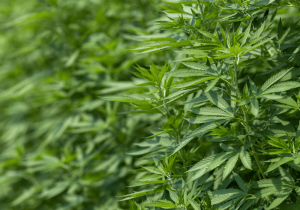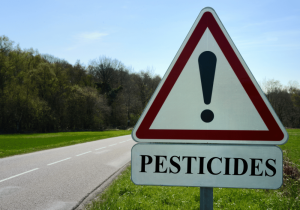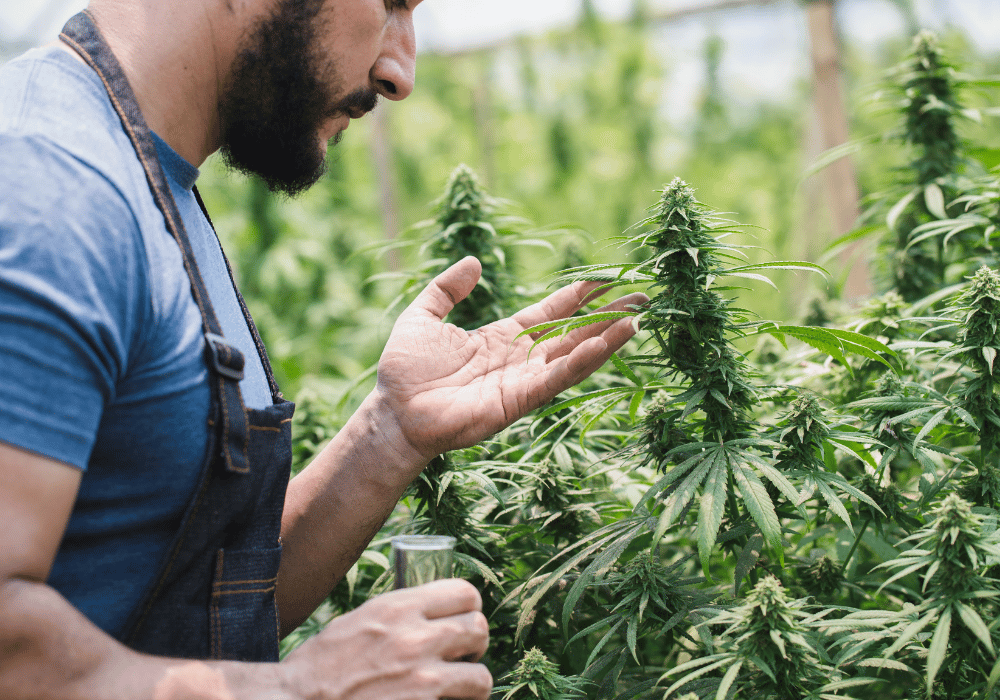The cannabis industry has seen exponential growth, bringing with it countless innovations and choices for consumers. Among these decisions, one polarizing debate dominates discussions—organic vs. non-organic cannabis. Enthusiasts and health-conscious individuals alike wonder, “Does it matter if I choose organic?” This blog breaks down the differences between organic and non-organic cannabis, examining cultivation methods, potential benefits and risks, and how to make an informed choice for your needs.
 What Does “Organic” Mean?
What Does “Organic” Mean?
To understand the organic vs. non-organic conversation, it’s crucial to define what makes cannabis “organic.” Organic cultivation focuses on sustainable, environmentally friendly farming practices, avoiding synthetic chemicals like pesticides, herbicides, and chemical fertilizers. Instead, growers rely on natural alternatives—think compost, biodiversity, and natural pest control methods.
For cannabis producers, securing organic certification adds another layer of scrutiny. Certification agencies, such as Canada Organic or USDA Organic, ensure farmers meet strict guidelines, including soil health, water conservation, and eco-friendly pest management. When applied to cannabis, organic certification guarantees that the plant was grown and processed without substances harmful to consumers or the planet.
Differences in Growing Practices
The distinction between organic and non-organic cannabis lies in how it’s grown, processed, and farmed. Below, we’ll compare the methods side by side:
Organic Cannabis Cultivation Practices
- Nutrient Sources: Organic cultivation relies on natural sources of soil nutrients, such as worm castings, compost, and bat guano.
- Pest Management: Integrated pest management (IPM) systems use beneficial insects (like ladybugs or predatory mites) and non-toxic sprays to control pests.
- Sustainability: Organic farming promotes biodiversity and renewable resources. Cover cropping, crop rotation, and avoiding synthetic chemicals enhance soil health for the long term.
- Drying/Processing: Post-harvest handling of organic cannabis avoids chemical additives, ensuring a clean final product.
Non-Organic Cannabis Cultivation Practices
- Nutrient Sources: Chemical fertilizers and synthetic nutrients are commonly used to stimulate growth and boost yields.
- Pest Management: Non-organic production often includes the use of synthetic pesticides and herbicides for pest and weed control.
- Efficiency: Non-organic growers often seek higher yields with faster turnarounds, sometimes at the cost of natural resource depletion.
- Drying/Processing: Some non-organic cannabis may be treated with chemical preservatives or additives to prolong shelf life.
Potential Benefits of Organic Cannabis
Choosing organic cannabis can offer several unique benefits, especially for those mindful of health and the environment. Here are a few reasons why you may want to go organic:
1. Fewer Chemicals in Your Product
Consumers concerned about chemical contamination will find comfort in organic cannabis. Free from synthetic pesticides, residue, or fertilizers, organic buds offer a cleaner smoking or vaping experience with potentially reduced health risks.
2. Better Taste and Aroma
Many enthusiasts argue that organic cannabis boasts superior flavour and aroma. Chemical-free soil and cultivation methods enhance terpene profiles, leading to deeper, richer aromas and a more enjoyable overall sensory experience.
3. Environmentally Friendly Practices
Organic farming methods reduce water waste, promote healthier soil, and limit toxic runoff that can harm ecosystems. Supporting organic cannabis means favouring practices that prioritize sustainability.
4. Holistic Benefits
Those who value the mind-body connection often prefer organic products to align with their wellness goals. Pairing cannabis consumption with sustainable choices adds that extra feel-good factor.
Potential Risks of Non-Organic Cannabis
Non-organic cannabis isn’t inherently “bad,” but certain aspects of this cultivation method may raise valid concerns. Consider the following:
 1. Potential Chemical Residues
1. Potential Chemical Residues
Non-organic farms rely on chemical pesticides, and while these are usually washed away, trace amounts can remain. Over time, excessive exposure may pose health risks—especially for individuals with compromised immune systems or sensitive lungs.
2. Terpene and Cannabinoid Quality
Because non-organic cannabis is often grown with efficiency and high yields in mind, the resulting product sometimes sacrifices terpene and cannabinoid integrity, leading to less potent or flavorful buds.
3. Environmental Damage
The use of chemical fertilizers impacts the land beyond the farm—it contaminates local water supplies and reduces biodiversity. Non-sustainable farming practices burden environmental resources in the long term.
4. Unregulated Inputs
When cannabis lacks organic certification, there’s no clear picture of what has gone into cultivating or processing that plant. Transparency becomes a concern for consumers wanting to make informed choices.
Debunking Myths About Organic and Non-Organic Cannabis
Despite growing awareness, several misconceptions persist about organic vs. non-organic cannabis. Let’s debunk the most common ones:
Myth 1: Organic Cannabis is Always Pesticide-Free
Fact: Organic growers sometimes use natural pesticides (e.g., neem oil), which are less toxic but not completely absent. The term “organic” ensures the pesticides used don’t harm consumers or the planet, but it doesn’t mean zero pest control.
Myth 2: Non-Organic is Unsafe to Consume
Fact: Non-organic cannabis sold through licensed retailers goes through strict lab testing for harmful pesticides and chemicals. Though it may lack the eco-conscious touch, non-organic cannabis in regulated markets is still deemed safe.
Myth 3: Organic Increasingly Means Higher THC Levels
Fact: THC levels result from the genetics and cultivation of the cannabis strain itself, not whether it is organic or non-organic.
Myth 4: Organic Cannabis is All the Same Quality
Fact: While organic cultivation contributes to better quality buds, variability in farming practices, genetics, and curing means not all organic cannabis will deliver the same experience.
Making an Informed Choice
When deciding between organic and non-organic cannabis, there’s no one-size-fits-all answer. It ultimately comes down to your health goals, lifestyle values, and available options. Here are some factors to consider:
- Health Concerns: Choose certified organic cannabis to minimize chemical exposure if you have sensitivities.
- Budget: Organic cannabis is often more expensive due to resource-intensive practices. Weigh your budget against your values.
- Flavour Priorities: If taste and aroma are your top priorities, organic cannabis with robust terpene profiles might appeal to you.
- Eco-Consciousness: Support organic producers in investing in sustainable agriculture.
At the end of the day, both options have their merits. The key lies in purchasing cannabis from trustworthy sources—ideally licensed dispensaries that provide lab-tested products with transparency about cultivation practices.
The organic vs. non-organic cannabis debate brings plenty of questions—but it ultimately empowers the consumer to choose what matters most to them. Organic cannabis delivers cleaner, tastier, and more sustainable buds, while non-organic options remain a reliable and budget-friendly choice. Whichever you pick, educate yourself about the product and prioritize brands that align with your personal beliefs. The goal is to enjoy cannabis safely, deliciously, and responsibly.

